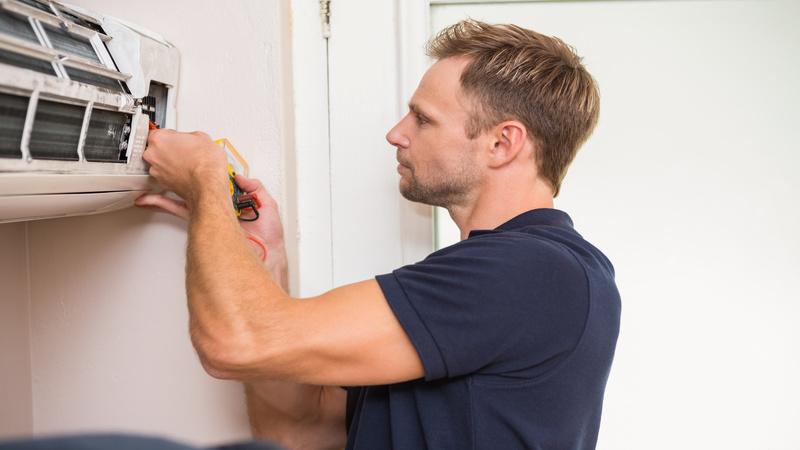An good night sleep is vital for overall health and stability, yet many people struggle to achieve it. A frequently neglected factor that can considerably impact sleep quality is the setting in which we relax, particularly the heating systems in our homes. Comprehending how HVAC systems function and the manner they contribute to a comfortable sleeping environment can help you improve your sleep quality and daily performance.
In this article, we will explore the various aspects of HVAC systems and their direct influence on sleep. From keeping optimal temperature and moisture levels to ensuring pure indoor air quality, the role of HVAC is crucial not just for relaxation but for health as well. We will provide tips into frequent HVAC challenges, maintenance tips, and innovative solutions that can help build a sleep sanctuary tailored to your needs. By the end, you will acquire the knowledge required to make wise decisions about your HVAC system, maximizing your sleep quality for a better, more rejuvenating experience each night.
Understanding HVAC

HVAC stands for Heating, Ventilation, and Cooling, which are the 3 key components that operate collectively to ensure a comfortable environment in residential and business spaces. Heating are air conditioning service for maintaining warmth during the cold season, while AC units lower the temperature of the air when it gets hot. Ventilation ensures that fresh air circulates around the space, removing indoor pollutants and ensuring good air quality indoors. Learning about how these systems work is important for deciding wisely about upkeeping and upgrading home comfort.
The main function of an HVAC system is based on its various components, including the furnace, air conditioner, heat pump, and ventilation ducts. The furnace or thermal pump generates heat that is distributed through ventilation systems or radiators, while the cooling unit cools and dehumidifies the air. Efficient airflow is achieved through carefully arranged vents and fans, guaranteeing that all parts of a building gets the necessary conditioning. Understanding of how these parts work together helps in optimizing their performance and energy efficiency.
Frequent HVAC problems can arise from insufficient maintenance, outdated technology, or inadequate sizing of the system for the space. These issues can show up in unpredictable temperatures, higher energy bills, or a faulty system. Routine maintenance, such as changing filters and seasonal tune-ups, can avoid many of these problems and prolong the service life of the system. By understanding HVAC systems and their common challenges, property owners can make better choices in repairs or replacements, ensuring a comfortable living environment all year long.
Heating, Ventilation, and Air Conditioning Care and Efficiency
Consistent Heating, Ventilation, and Air Conditioning maintenance is vital for ensuring the system functions effectively and efficiently. Filtered filters, for example, permit improved airflow, allowing the system to maintain a desired heat level with less power consumption. Neglecting maintenance can lead to higher energy bills and a drop in efficiency, as dirt and debris accumulate within the system. Setting up routine inspections not only assists catch possible issues early but also extends the lifespan of the HVAC equipment.
Another important aspect of HVAC efficiency is the optimization of temperature control settings. It's important to find a compromise that maintains convenience while also minimizing energy use. For instance, setting the thermostat a few degrees Fahrenheit up in the summer and a slightly cooler in winter can lead to considerable savings over time. Numerous modern systems provide programmable thermostats that change automatically, guaranteeing optimal performance based on your routine and preferences.
To wrap up, keeping the area around the HVAC unit clear and free from obstacles aids in effective operation. This allows for enhanced airflow and avoids excessive heat or strain on the system. Consistently checking for gaps in the ducts and verifying proper insulation can further enhance energy efficiency. By taking these simple steps, residents can ensure their HVAC systems operate efficiently while contributing to reduced energy costs and improved comfort in their home spaces.
HVAC's Impact on Indoor Air Quality
The standard of indoor air is crucial for upholding a healthy residential environment, and HVAC systems hold a critical role in this sphere. By effectively managing heat and humidity, HVAC systems aid to minimize the growth of mold, allergens, and other toxins that can influence air quality. Additionally, proper ventilation provided by these systems secures that clean outdoor air moves inside, diminishing the amount of interior contaminants and offering a more pleasant space.
To boost interior air standards, picking the right air screening for your HVAC system is important. High-efficiency particulate air (HEPA) filters can catch a considerable proportion of airborne particles, such as dirt, plant spores, and pet allergens. Consistently changing these filters, as part of HVAC care, helps ensure optimal performance and secures that the air moving in your home is clean and secure. Furthermore, some modern HVAC systems come fitted with sophisticated filtration methods that can also enhance air purity by removing odors and toxic particles.
Moisture control is another critical function of HVAC systems that specifically impacts indoor air quality. Adequate humidity levels help avoid the proliferation of bacteria and microbes, which prosper in overly moist environments. Installing a dehumidifier or confirming your HVAC system features moisture control features can significantly enhance your home's air quality, making the habitat space not only more pleasant but also safer. Keeping moisture in check contributes to enhanced respiratory health and minimizes sensitivity symptoms, leading to better overall health for residents.
